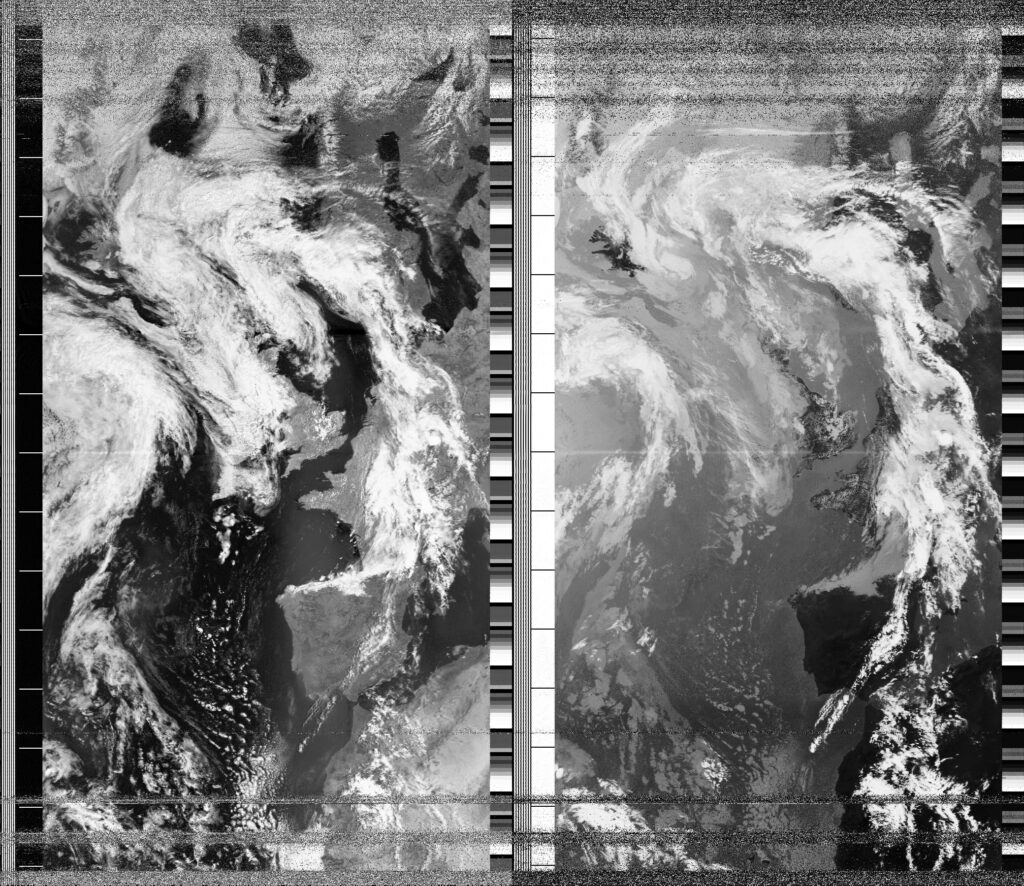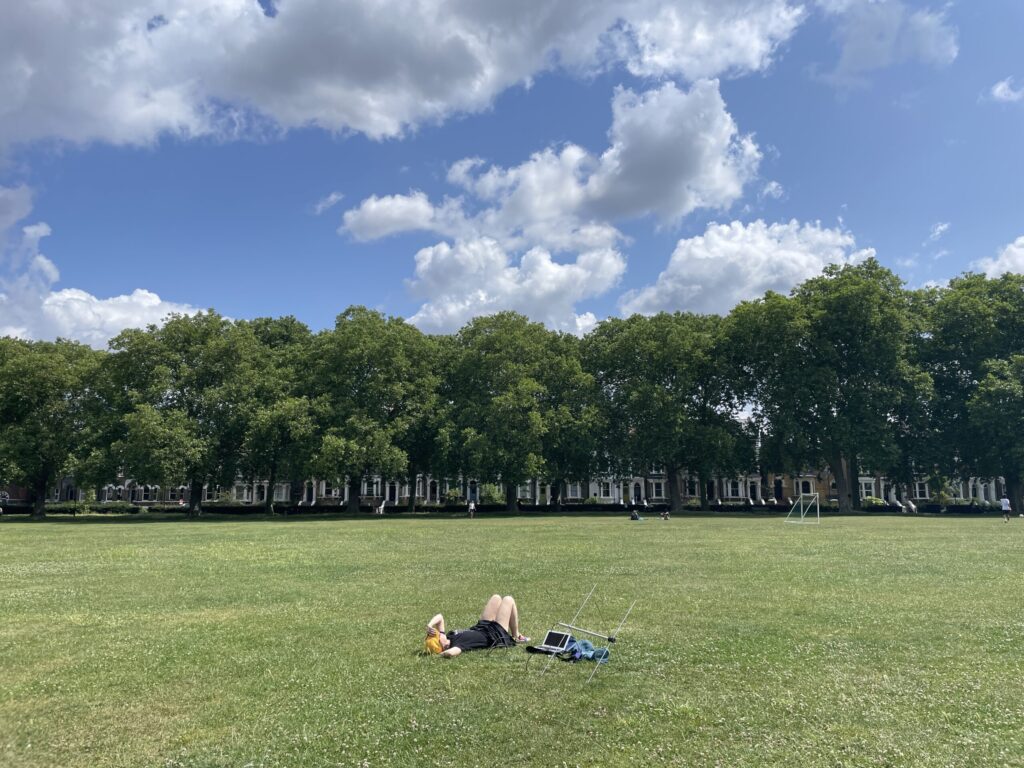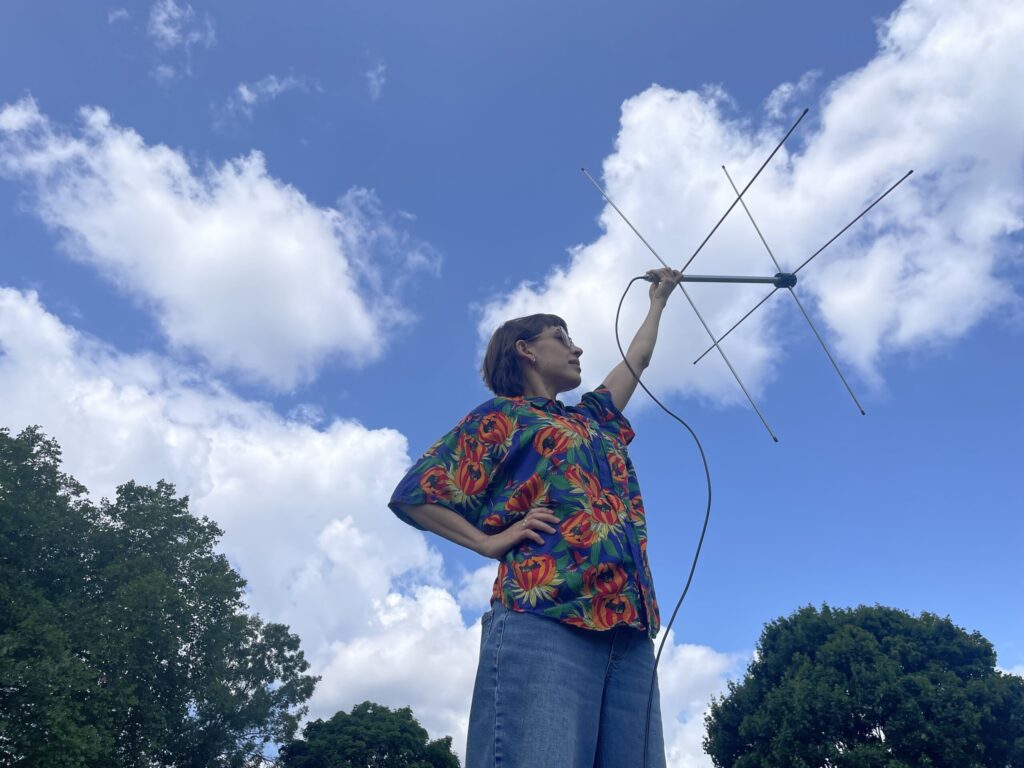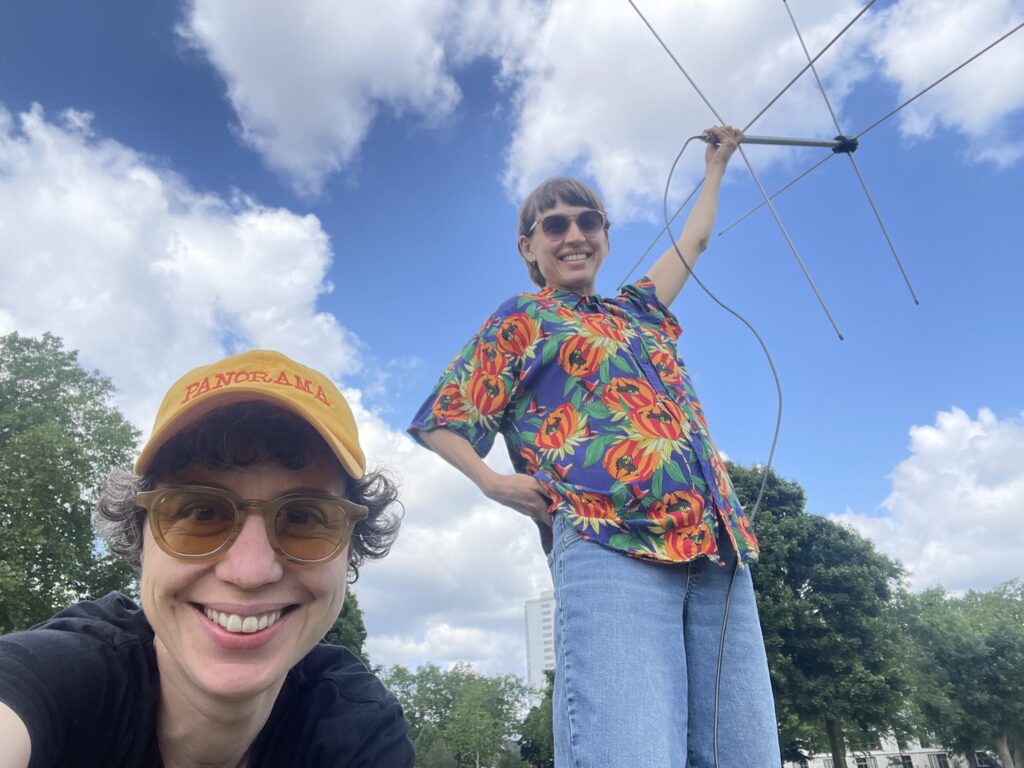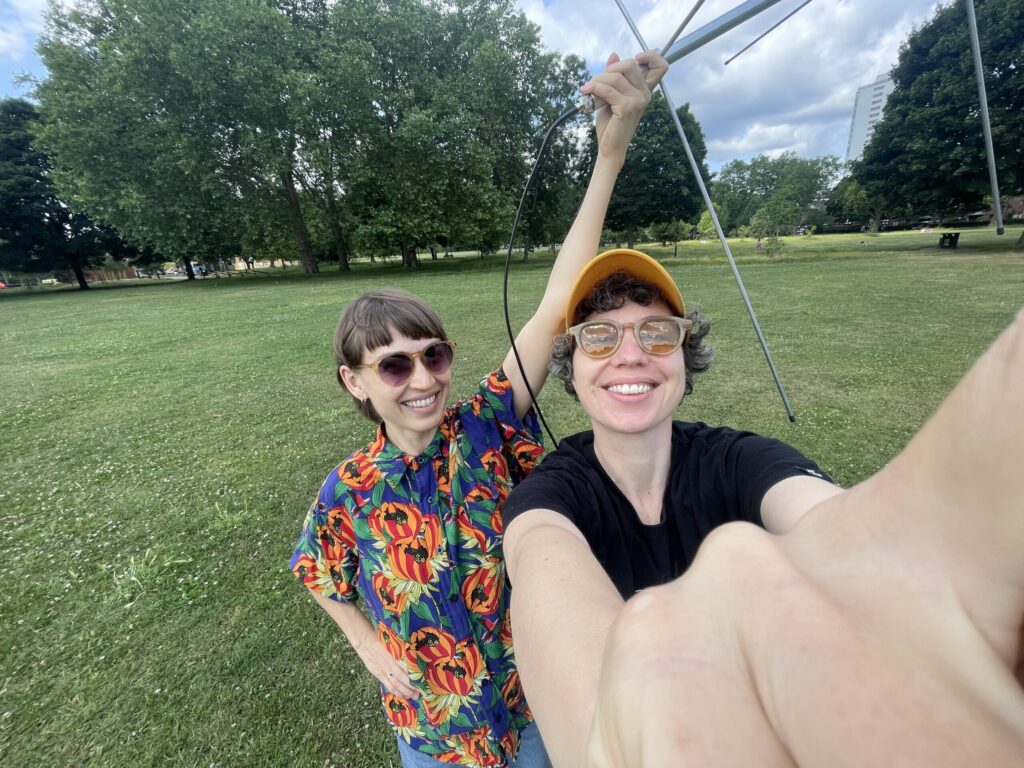Local Date
15 June 2025Local Time
11:52Location
Hackney Downs, LondonCountry or Territory
United KingdomContributor
Sasha EngelmannSatellite
NOAA-19Radio Callsign
Archive ID
Coordinates
I sit on the browning grass of Hackney Downs in unseasonably warm weather and read Kaya Barry's latest article on 'unseasonable seasons'. Kaya - a fellow geographer, artist and allied thinker from many symposia and conferences - uses Rob Nixon's famous conceptual framework on 'slow violence' to explore changing meanings of seasons in a time of climate crisis. At least since colonial times, the seasons have been employed to overlay the Gregorian calendar and Western thought-systems onto many other landscapes and peoples, so that local observations of seasonality were heavily suppressed or treated as 'vulgar' (Barry, 2025). This is a slow violence of vernacular weather knowledge erasure. Yet the 'slow violence' of seasons is also about how unseasonable variations in temperature, rainfall, humidity, drought and cloud cover can sometimes be relatively subtle, minor variations, barely breaching thresholds of noticeability. I think of many years growing up in Los Angeles when an ever dryer and dryer, sunnier and sunnier winter was pleasantly enjoyed by most people I knew. Kaya cites artist Roni Horn: 'weather that is nice is often weather that is wrong' (2007: 10).
As I write, my home city of Los Angeles is invaded by the national guard: heavily armed military troops whose presence in a city that has just been devastated by wildfire is an obvious violence. 'First fire, now ICE' chant protesters in Pasadena and downtown LA, describing a feeling of living through a climate disaster that is underpinned and exacerbated by a human rights disaster, where migrant workers helping to clean up and remediate burned areas, not to mention how they sustain and contribute in myriad other ways to the culture, fabric and joy of life in Los Angeles, are ruthlessly targeted by ICE forces. The apocalyptic, elemental, even biblical metaphors of fire and ice are difficult to ignore.
These thoughts swirl like fractals as my partner and I catch one of the last passes of NOAA-19 over London to contribute to the open-weather 'end of life' nowcast, the day before most instruments on NOAA-15 and NOAA-19 will be shut down.
